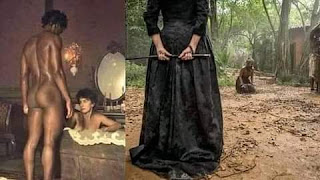Great thinker, Hypatia, victim of religious intolerance !!!
Great thinker, Hypatia, victim of religious intolerance !!!
On a sad day in Alexandria in 415, a mob of Christians stopped a woman on the street, dragged her from her carriage, and led her into a church. Then they stripped her naked, beat her to death, tore her body apart, and burned her. Who was this woman and what was her crime? This is the famous Hypatia of Alexandria. Hyptia is a female philosopher and mathematician who was born in Alexandria in 370 (some scholars believe she was born in 350). She was the daughter of a mathematician called Theon who tutored her in math, astronomy, and the philosophy of the day which would be considered in modern times science. She was one of the last great thinkers of Alexandria and one of the first women to teach Neo-Platonism, math, astronomy, and philosophy.
Alexandria was becoming increasingly diverse religiously. Since Hypatia was a close friend of the pagan governor of Alexandria (Orestes), Cyril, the Archbishop of Alexandria, blamed her for stopping Orestes from accepting the "true faith". The Church of Alexandria saw Hypatia as a "stumbling block" to those who would have accepted the "truth" of Christianity, if it was not for her charisma, charm, and excellence in making difficult mathematical concepts understandable to her students. Such concepts contradicted the teachings of the relatively new church of Alexandria. Alexandria was a great seat of learning in the early days of Christianity, but as the Christian faith became more powerful, fighting among religious factions steadily divided the city. We wouldn't be exaggerating to say that Alexandria, as a centre of learning and culture, was destroyed by religious intolerance. Hypatia's brutal death was regarded as the end of the Classical World.
Hypatia's father, Theon, refused to enforce upon his daughter the traditional role assigned to women. To the contrary he raised her as a father would have brought up his son in the Greek tradition, by teaching her his own trade. The historian Slatkin writes, "Greek women of all classes were occupied with the same type of work, mostly centered around the domestic needs of the family. Women cared for young children, nursed the sick, and prepared food". Hypatia, however, led the life of a respected academic at Alexandria's University, a position only males would be entitled to. She never married. She dedicated her life to learning and teaching. She was a woman of enormous intellectual power. Founded by Alexander the Great in 332 BC, Alexandria grew to symbolize the best aspects of civilized urban life. Alexandria's university was held in such high regard that scholars would flock there from all over the world. The Library of Alexandria had about 500.000 books in the main building and even more in an adjacent annex. As a professor at the university, Hypatia had access to this amazing resource..
After Hypatia's death, the university was sacked and burned upon orders from Cyril, pagan temples were pulled down, and there was a mass exodus of intellectuals and artists from the newly-Christianized city of Alexandria. The Church later declared Cyril a saint for his efforts in suppressing paganism and fighting for the true Christian faith. In 2009 a feature film called AGORA accurately depicted the religious turmoil of Alexandria in that period. It's little wonder this film sparked controversy from some segments of the Christian community who were against depicting early Christians as fanatical enemies of learning and culture.











Comments
Post a Comment